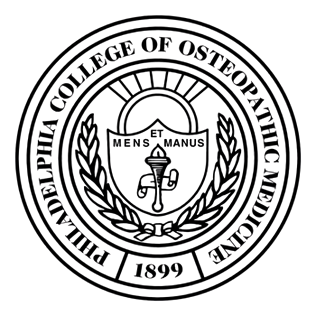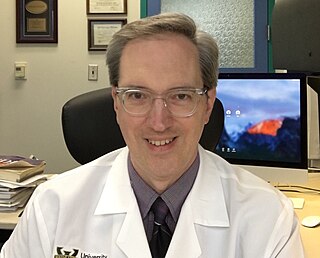
A doctorate or doctoral degree is a postgraduate academic degree awarded by universities and some other educational institutions, derived from the ancient formalism licentia docendi.
The World Professional Association for Transgender Health (WPATH), formerly the Harry Benjamin International Gender Dysphoria Association (HBIGDA), is a professional organization devoted to the understanding and treatment of gender identity and gender dysphoria, and creating standardized treatment for transgender and gender variant people. WPATH was founded in September 1979 by endocrinologist and sexologist Harry Benjamin, with the goal of creating an international community of professionals specializing in treating gender variance.

The Albert Einstein College of Medicine is a private, research-intensive medical school in New York City. Founded in 1953, Einstein operates as an independent degree-granting institution; it is part of the integrated healthcare Montefiore Health System and is also affiliated with Jacobi Medical Center.
Doctor of Medicine is a medical degree, the meaning of which varies between different jurisdictions. In the United States, and some other countries, the M.D. denotes a professional degree. This generally arose because many in 18th-century medical professions trained in Scotland, which used the M.D. degree nomenclature. In England, however, Bachelor of Medicine, Bachelor of Surgery (M.B.B.S.) was used and eventually in the 19th century became the standard in Scotland too. Thus, in the United Kingdom, Ireland and other countries, the M.D. is a research doctorate, honorary doctorate or applied clinical degree restricted to those who already hold a professional degree (Bachelor's/Master's/Doctoral) in medicine. In those countries, the equivalent professional degree to the North American, and some others' usage of M.D. is still typically titled Bachelor of Medicine, Bachelor of Surgery.

Baylor College of Medicine (BCM) is a medical school and research center in Houston, Texas, within the Texas Medical Center, the world's largest medical center. BCM is composed of four academic components: the School of Medicine, the Graduate School of Biomedical Sciences; the School of Health Professions, and the National School of Tropical Medicine.
The University of Texas Health Science Center at Houston (UTHealth) is a public academic health science center in Houston, Texas, United States. It was created in 1972 by The University of Texas System Board of Regents. It is located in the Texas Medical Center, the largest medical center in the world. It is composed of six schools: McGovern Medical School, The University of Texas MD Anderson Cancer Center UTHealth Graduate School of Biomedical Sciences, UTHealth School of Dentistry, Cizik School of Nursing, UTHealth School of Biomedical Informatics and UTHealth School of Public Health.
The Medical Scientist Training Programs (MSTPs) are dual-degree training programs that streamline the education towards both clinical and research doctoral degrees. MSTPs are offered by some United States medical schools, who are awarded financial support from the National Institute of General Medical Sciences, a branch of the National Institutes of Health (NIH). The goal of these training programs is to produce physician scientists who can translate laboratory discoveries into effective treatments for patients.
Translational medicine develops the clinical practice applications of the basic science aspects of the biomedical sciences; that is, it translates basic science to applied science in medical practice. It is defined by the European Society for Translational Medicine as "an interdisciplinary branch of the biomedical field supported by three main pillars: benchside, bedside, and community". The goal of translational medicine is to combine disciplines, resources, expertise, and techniques within these pillars to promote enhancements in prevention, diagnosis, and therapies. Accordingly, translational medicine is a highly interdisciplinary field, the primary goal of which is to coalesce assets of various natures within the individual pillars in order to improve the global healthcare system significantly.
A medical physicist is a health professional with specialist education and training in the concepts and techniques of applying physics in medicine and competent to practice independently in one or more of the subfields (specialties) of medical physics. A medical physicist plays a fundamental role in applying physics to medicine, but particularly in the diagnosis and treatment of cancer. The scientific and technological progress in medical physics has led to a variety of skills that must be integrated into the role of a medical physicist in order for them to perform their job. The "medical services" provided to patients undergoing diagnostic and therapeutic treatments must, therefore, be the result of different but complementary skills. In general, the medical physicist is responsible for all scientific and technical aspects of imaging, radiation treatment, and radiation safety. It is their occupational role to ensure that medical modalities offered to patients are met with the utmost quality assurance. It is the medical physicist that manage and supervise the efforts of dosimetrists, therapists and technologists in that capacity.
A terminal degree is the highest-level college degree that can be achieved and awarded in an academic discipline or professional field. In other cases, it is a degree that is awarded because a doctoral-level degree is not available nor appropriate. The two main types of terminal degrees are academic or professional.

The American Osteopathic Association (AOA) is the representative member organization for the more than 176,000 osteopathic medical doctors (D.O.s) and osteopathic medical students in the United States. The AOA is headquartered in Chicago, Illinois, and is involved in post-graduate training for osteopathic physicians. Beginning in 2015, it began accrediting post-graduate education as a committee within the Accreditation Council for Graduate Medical Education, creating a unified accreditation system for all DOs and MDs in the United States. The organization promotes public health, encourages academic scientific research, serves as the primary certifying body for D.O.s overseeing 18 certifying boards, and is the accrediting agency for osteopathic medical schools through its Commission on Osteopathic College Accreditation. As of October 2015, the AOA no longer owns the Healthcare Facilities Accreditation Program (HFAP), which accredited hospitals and other health care facilities.

Philadelphia College of Osteopathic Medicine (PCOM) is a private medical school with its main campus in Philadelphia, Pennsylvania, and additional locations in Suwanee, Georgia and Moultrie, Georgia.

Texas A&M Health, also known as Texas A&M University Health, and Texas A&M University Health Science Center, is the medical education component of Texas A&M University, and offers health professions research, education and patient care in dentistry, medicine, nursing, biomedical sciences, public health, and pharmacy on its several campuses. One of the fastest-growing academic health centers in the nation, Texas A&M Health encompasses six schools and numerous centers and institutes. It was established in 1999 as an independent institution of the Texas A&M University System and received accreditation in December 2002 from the Southern Association of Colleges and Schools to award baccalaureate, master's, doctoral and professional degrees. The institution and its colleges merged with Texas A&M University on July 12, 2013.

The Medical University of Varna (MU-Varna) is a Bulgarian state school for higher education dedicated to training specialists in the fields of medicine and healthcare who graduate with the educational and qualification degrees of Master, Bachelor and Professional Bachelor. The university has a legal entity status with the following scope of business activities: training of cadres and professional qualification; training of PhD students; postgraduate education for medical and non-medical cadres; conducting medical diagnosis, prevention, consultation, rehabilitation, and expert services at the university hospitals; scientific research and applied sciences; international cooperation in the field of education and science; administrative, social, sport, publishing, information, and other activities.
The American Society of Transplantation (AST) is an international organization of over 4,000 transplant professionals dedicated to advancing the field of transplantation through the promotion of research, education, advocacy, organ donation, and service to the community through a lens of equity and inclusion. It is the largest professional transplantation society in North America.
MEDICC is a non-profit organization founded in 1997 that works to enhance cooperation among the US, Cuban and global health communities through its programs.
Informatics is the study of computational systems. According to the ACM Europe Council and Informatics Europe, informatics is synonymous with computer science and computing as a profession, in which the central notion is transformation of information. In some cases, the term "informatics" may also be used with different meanings, e.g. in the context of social computing, or in context of library science.
The Howard University College of Medicine (HUCM) is an academic division of Howard University that grants the Doctor of Medicine (M.D.), Ph.D., M.S., and the M.PH. HUCM is located at the Howard University Health Sciences Center in Washington, D.C., and it was founded in 1868 in response to the growing population of the city.

David Henry Gorski is an American surgical oncologist and professor of surgery at Wayne State University School of Medicine. He specializes in breast cancer surgery at the Karmanos Cancer Institute. Gorski is an outspoken skeptic and critic of alternative medicine and the anti-vaccination movement. A prolific blogger, he writes as Orac at Respectful Insolence, and as himself at Science-Based Medicine where he is the managing editor.

Henk Antonius Maria Johannes ten Have is Professor emeritus at the Center for Healthcare Ethics at Duquesne University in Pittsburgh, U.S.A. where he has been Director since 2010. Previously, he served in UNESCO as Director of the Division of Ethics of Science and Technology (2003–2010). His recent works are: Global Bioethics—An Introduction (2016), Vulnerability—Challenging Bioethics (2016), Encyclopedia of Global Bioethics (2016), and Wounded Planet (2019).








